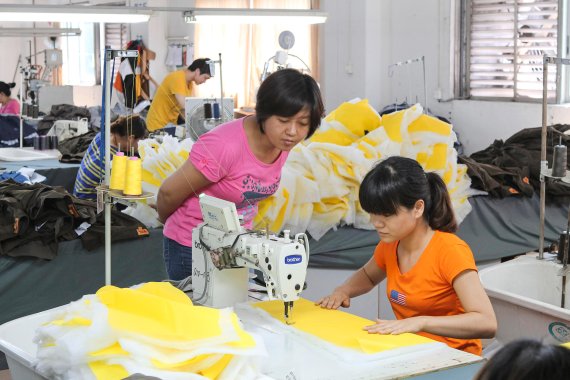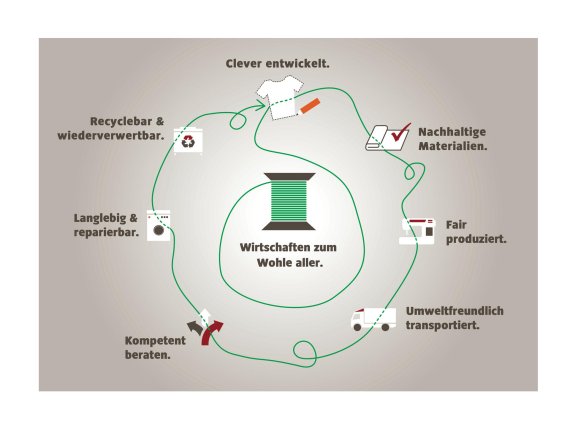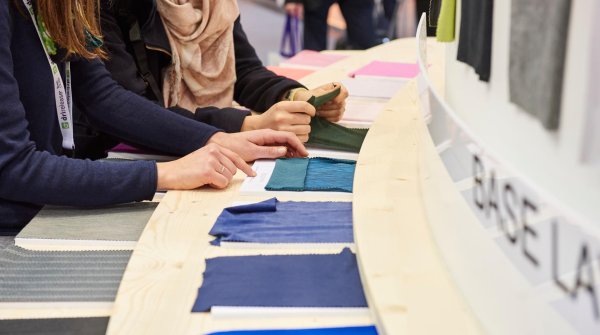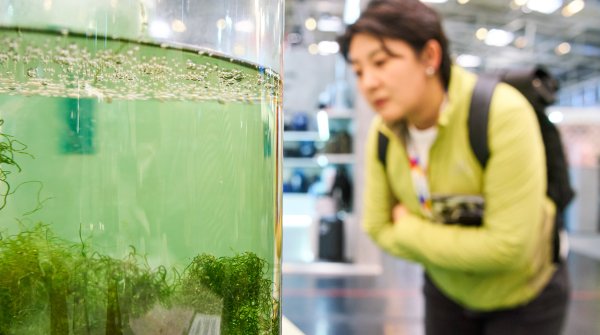
Greenwashing – according to the clear reproach of Immenstadt's MDC Sportswear GmbH after Primark's admission to the alliance for sustainable textiles. Chief executive Michael Pfister therefore desclared his withdrawal in a letter to the initator of the textile alliance, Germany's Minister of Development Gerd Müller, and in doing so made some big waves. He says that the goals of companies like Kik, Tchibo, and Primark and co. to be irreconcilable with their own: "The admission of Primark, a company which with its throw-away fashion is doing the opposite of what we stand for, makes it impossible for us to belong to the alliance any longer." Overall, they have done absolutely nothing since the founding of the initiative in October of 2014.
Sustainability: Gathering everything that put them on the right path
The reproaches and spectacular withdrawal naturally triggered heavy discussion among the 175 members from the industry. Even the rolemodel company Vaude, crowned Sustainability Champion in German in 2015 nevertheless believes that the joining of Primark is true to the matter. "We principally see the joining positively, regardless of how strongly a company has been involved. When a company joins the textile alliace, it's first a clear signal that this company would like to participate in improving the environmental and social standards in textile production," says Jan Lorch, Management Sales & CSR, to ISPO.com. The low admission threshold had been deliberately chosen to get those onboard who, though they still hadn't come very far, do want to get on the right path.

Expulsion from the textile alliance as an option
Nevertheless, discounters like Primare were met with an obligation: "It will show to what extent companies like Primark are ultimately ready to abide by the ambitious review processes striven for by the alliance." The textile alliance would have to pass binding procedures, including control and sanction mechanisms, as quickly as possible. Lorch: "Of course, it's crucial that we succeed in agreeing on strict requirements to actually achieve improvements. Sanction measures for members that don't fulfill these requirements also have to be clear. In extreme cases, members of the alliance should be able to be expelled."
Discounters throw old business models overboard
Generally, the textile alliance is a good opportunity for the industry to be able to really change the framework conditons of the textile industry by acting together. Even discounters like Lidl seem ready to throw former supply chains and business models overboard. "With a view to the worldwide supply chain, Lidl has the aim of doing away with the use and release of the chemicals defined by Greenpeace like PFC from the manufacturing process of its home brand textiles and shoes by 2020," says a Lidl spokesperson on request of ISPO. The textile alliance's action plan is to serve as the preliminary orientation framework for a sustainable textile supply chain.
Aldi Nord and Aldi Süd have also been members of the alliance for sustainable textiles since October of 2015. The discounters told ISPO.com that they wanted "to contribute to further sustainably improving the social, environmental, and economic standards in the textile production and supply chain across sectors, as well. To achieve this goal, it's necessary to optimally pool the commitment of all participants." The textile alliance is therefore primarily valuable "as it brings together a relevant number of completely different actors from the economic system, NGOs, unions, and government to a table to work together on problem-solving approaches."
Aldi defends itself against greenwashing accusation
"We can deny the accusation of greenwashing with a reference to our extensive activites even beyond the textile alliance. We can tell you that we fundamentally reget that individual members of the alliance pull out of the alliance for sustainable textiles, as an alliance can only function if as large a market coverage as possible is available and we act in concert," says Aldi in its statement.
Goals only achievable with market leaders
Even Kik, a company explicity named by textile alliance critic MDC, is taking to the commitment. "For Kik, the improvement of production conditions in producing countries is an important concern. Our goal is to improve the social, economic, and ecological standards in the textile and apparel industry," says Olga Bakanow from company communications, "The textile alliance can then only reach its goals if the market leaders in the apparel industry and in trade are members." Naturally, some compromises are necessary for several topics in an alliance with many members.

Primark admission promotes internationalization
But the goal is also clear for Kik: "With our collaboration, we want to contribute to making Germany the pioneer in international efforts for adequate production conditions in the global supply chain. Because of the global interrelations of the textile industry, however, the process of linking at the international or at least European level should be accelerated in parallel." The entry of Primark is an important advancement in exactly this aspect. The Germany Ministry of Development also sees it that way, and once again emphasized in a statement that the textile alliance "stands fundamentally open to any company that commits itself to the social and ecological alliance goals."
The onus on Primark
That's what Primark has done with its admission. "The textile alliance is a very important initiative and we're glad to play an active role in this organization for sustainable economy," explained Wolfgang Krogmann, Primark General Manager for Germany and Austria. The company will be measured by whether it is actually committing itself to the issue of sustainability.
- ISPO awards
- Mountain sports
- Bike
- Design
- Retail
- Fitness
- Health
- ISPO Job Market
- ISPO Munich
- ISPO Shanghai
- Running
- Brands
- Sustainability
- Olympia
- OutDoor
- Promotion
- Sports Business
- ISPO Textrends
- Triathlon
- Water sports
- Winter sports
- eSports
- SportsTech
- OutDoor by ISPO
- Heroes
- Transformation
- Sport Fashion
- Urban Culture
- Challenges of a CEO
- Trade fairs
- Sports
- Find the Balance
- Product reviews
- Newsletter Exclusive Area
- Magazine





